In today’s world, the beauty industry is witnessing a significant shift towards organic cosmetics. Organic cosmetics are defined as products made from natural ingredients, free from harmful chemicals and pesticides commonly found in conventional cosmetics. This essay explores the concept of organic cosmetics, their benefits, the use of organic ingredients, production processes, certification standards, and the future trends in this rapidly growing industry.
Definition of organic cosmetics
Organic cosmetics can be defined as beauty and personal care products that are formulated with natural ingredients sourced from organic farming practices. These products are made without the use of synthetic chemicals, pesticides, genetically modified organisms (GMOs), or other harmful substances commonly found in conventional cosmetics. The focus of organic cosmetics is to provide a safer and more sustainable alternative, promoting the well-being of both individuals and the environment. The organic certification ensures that these cosmetics meet specific standards and criteria, guaranteeing the authenticity and integrity of their organic ingredients and manufacturing processes. By choosing organic cosmetics, consumers prioritize their health, minimize their exposure to potentially harmful substances, and support environmentally conscious practices.
Organic Ingredients in Cosmetics

Organic Cosmetics – Embracing Nature for Health and Beauty
Organic ingredients in cosmetics refer to ingredients that are sourced from organic farming practices and meet specific organic standards. These ingredients are cultivated without the use of synthetic pesticides, herbicides, genetically modified organisms (GMOs), and other harmful chemicals. Here are some commonly used organic ingredients in cosmetics:
- Plant Extracts: Organic cosmetics often utilize plant extracts derived from flowers, herbs, fruits, and vegetables. Examples include chamomile extract, lavender extract, rosehip extract, aloe vera extract, green tea extract, and calendula extract. These plant extracts provide various benefits for the skin, such as soothing, anti-inflammatory, antioxidant, and moisturizing properties.
- Botanical Oils: Organic cosmetics incorporate botanical oils that are obtained from organic plant sources. These oils include jojoba oil, argan oil, rosehip oil, coconut oil, olive oil, and almond oil. Botanical oils are rich in essential fatty acids, vitamins, and antioxidants, which help nourish and hydrate the skin, promote elasticity, and protect against environmental damage.
- Essential Oils: Organic cosmetics may also feature essential oils derived from organic plant materials. Essential oils like lavender, tea tree, peppermint, rosemary, and citrus oils are commonly used for their aromatic properties and potential skincare benefits. They can provide natural fragrance, antimicrobial properties, and skin-enhancing effects when used in appropriate dilutions.
- Butters: Organic cosmetic formulations may include organic plant-based butters like shea butter, cocoa butter, and mango butter. These butters are rich in vitamins, minerals, and fatty acids, offering excellent moisturizing and nourishing properties. They help soften the skin, improve texture, and provide a protective barrier against moisture loss.
- Herbal Infusions: Organic cosmetics often infuse herbs and flowers into oils or water to create herbal infusions. These infusions capture the beneficial properties of the plants and are used in products like toners, face mists, and masks. Examples include rosewater, lavender water, and chamomile-infused oil.
- Natural Waxes: Organic cosmetics may incorporate natural waxes like beeswax and carnauba wax as thickeners, emollients, and stabilizers. Beeswax, derived from beehives, offers moisturizing and protective properties, while carnauba wax, obtained from the leaves of the carnauba palm tree, provides a smooth texture and glossy finish.
- Fruit and Seed Extracts: Organic cosmetics may feature fruit and seed extracts, such as pomegranate extract, grape seed extract, and raspberry seed extract. These extracts are rich in antioxidants, vitamins, and fatty acids, offering anti-aging benefits, protection against environmental stressors, and promoting overall skin health.
It’s important to note that while organic ingredients are derived from organic farming practices, the overall formulation of a cosmetic product may not be 100% organic. Some products may contain a mix of organic and non-organic ingredients. To ensure the organic integrity of a product, it’s advisable to look for certifications and labels that verify its organic status, such as USDA Organic, COSMOS Organic, or Ecocert Organic.
Benefits of Organic Cosmetics
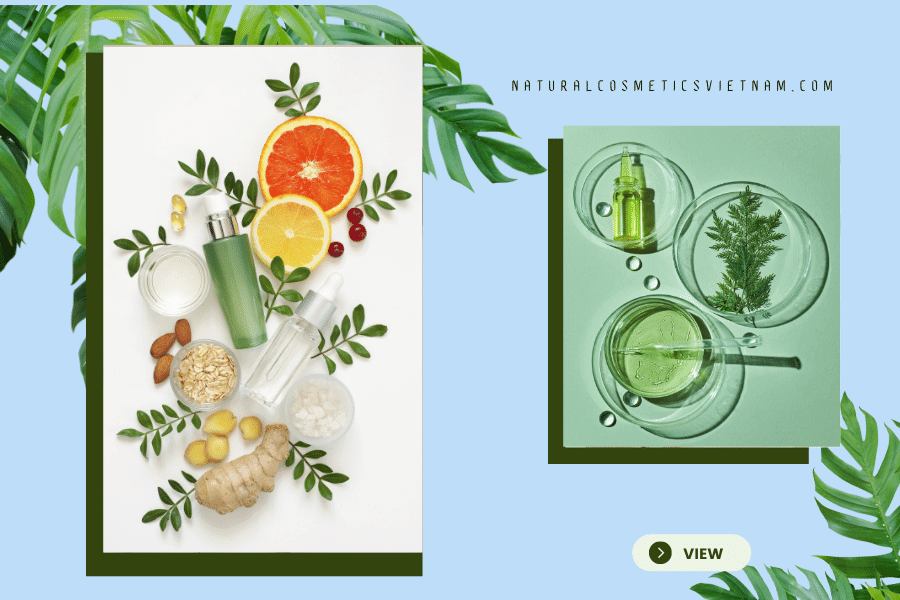
Organic Cosmetics – Embracing Nature for Health and Beauty
Organic cosmetics offer numerous benefits that make them increasingly popular among consumers. Here are some key benefits of using organic cosmetics:
Safety for Health
Safety for health is one of the significant benefits of using organic cosmetics. Here are some key points elaborating on this benefit:
- Avoidance of Harmful Chemicals: Organic cosmetics are formulated without the use of harmful chemicals such as parabens, phthalates, sulfates, synthetic fragrances, and artificial colors. These chemicals, commonly found in conventional cosmetics, have been linked to various health concerns, including hormone disruption, allergic reactions, skin irritations, and potential long-term health risks. By choosing organic cosmetics, individuals can minimize their exposure to these potentially harmful substances.
- Reduced Sensitivities and Allergies: Many people experience sensitivities or allergies when using conventional cosmetics due to the presence of harsh chemicals and synthetic ingredients. Organic cosmetics, on the other hand, are often formulated with natural and gentle ingredients that are less likely to cause adverse reactions. This makes them a suitable choice for individuals with sensitive skin or those prone to allergic reactions.
- Preservation of Skin Barrier: The skin acts as a protective barrier against external aggressors. Harsh chemicals found in conventional cosmetics can disrupt the skin’s natural balance, strip away essential oils, and compromise the skin barrier function. Organic cosmetics, formulated with natural and nourishing ingredients, help maintain the skin’s integrity, support its natural defenses, and promote a healthy skin barrier.
- Potential Health Benefits from Natural Ingredients: Organic cosmetics utilize natural ingredients derived from plants, herbs, and botanicals. These ingredients often contain beneficial properties such as antioxidants, vitamins, and minerals that can have positive effects on the skin and overall health. For example, organic plant oils like argan oil and jojoba oil provide hydration, while herbal extracts like chamomile and green tea offer soothing and calming benefits. By incorporating these natural ingredients, organic cosmetics can contribute to the overall well-being of the skin and potentially provide additional health benefits.
- Safer for Long-Term Use: Since organic cosmetics are formulated with natural and organic ingredients, they are generally considered safer for long-term use compared to conventional cosmetics that may contain potentially harmful chemicals. By choosing organic alternatives, individuals can reduce their cumulative exposure to synthetic substances and potentially minimize the risks associated with long-term use of conventional cosmetics.
Gentle and Nurturing
Another benefit of organic cosmetics is their gentle and nurturing nature. Here are some points that highlight this aspect:
- Mild Formulations: Organic cosmetics are often formulated with gentle ingredients that are less likely to cause irritation or sensitization. These products avoid harsh chemicals, synthetic fragrances, and artificial colors that can potentially harm the skin. Instead, they focus on using natural and organic ingredients that are known for their soothing and calming properties.
- Nourishing Ingredients: Organic cosmetics harness the power of nature to provide nourishment to the skin. They are often enriched with botanical extracts, plant oils, and butters that are rich in vitamins, antioxidants, and essential fatty acids. These ingredients help hydrate and moisturize the skin, improving its texture and appearance. They can also provide nutrients that support the skin’s natural regeneration and rejuvenation processes.
- Skin-Friendly Solutions: Organic cosmetics are designed to work in harmony with the skin’s natural functions. They aim to maintain the skin’s balance, pH levels, and moisture levels, helping to support a healthy and radiant complexion. By using gentle and skin-friendly formulations, organic cosmetics can be suitable for various skin types, including sensitive and delicate skin.
- Calming and Soothing Properties: Many organic cosmetics incorporate botanical extracts known for their calming and soothing properties. Ingredients such as chamomile, lavender, calendula, and aloe vera have anti-inflammatory and soothing effects on the skin. They can help alleviate redness, irritation, and discomfort, making organic cosmetics particularly beneficial for individuals with sensitive or reactive skin.
- Hydration and Moisture Retention: Organic cosmetics often contain natural humectants and emollients that help retain moisture in the skin. Ingredients like hyaluronic acid, glycerin, and plant oils provide hydration and prevent water loss, keeping the skin supple and moisturized. This can improve the skin’s overall health, elasticity, and reduce the appearance of dryness and fine lines.
- Gentle Fragrance Options: Organic cosmetics may use natural essential oils to provide a subtle and gentle fragrance. These oils not only add a pleasant aroma but also offer potential aromatherapy benefits, promoting relaxation and well-being. Unlike synthetic fragrances that can be overpowering and potentially irritating, organic cosmetics use natural scents that are typically well-tolerated by individuals.
Environmental Friendly
Environmental friendliness is a significant benefit of using organic cosmetics. Here are some key points explaining how organic cosmetics contribute to environmental sustainability:
- Sustainable Ingredient Sourcing: Organic cosmetics prioritize the use of ingredients derived from organic farming practices. Organic farming methods avoid the use of synthetic pesticides, herbicides, and genetically modified organisms (GMOs), which can have detrimental effects on the environment. By sourcing ingredients from organic farms, organic cosmetics support sustainable agricultural practices that promote soil health, biodiversity, and natural ecosystems.
- Reduced Chemical Pollution: Conventional cosmetics often contain synthetic chemicals that can have negative environmental impacts. These chemicals can enter water bodies, soil, and the atmosphere during production, usage, and disposal. Organic cosmetics, on the other hand, avoid the use of harmful chemicals and toxins, reducing the pollution burden on the environment. By choosing organic cosmetics, individuals contribute to a cleaner and healthier environment.
- Biodegradable Packaging: Many organic cosmetic brands prioritize eco-friendly packaging materials. They opt for biodegradable, recyclable, or compostable packaging options to minimize waste and reduce the environmental impact. This includes using materials like glass, paperboard, or plant-based plastics, which have a lower carbon footprint and are less harmful to ecosystems compared to conventional plastic packaging.
- Preservation of Ecosystems: Organic farming practices used to cultivate ingredients for organic cosmetics promote the preservation of ecosystems. Organic farms often maintain biodiversity by avoiding the use of synthetic chemicals that can harm beneficial insects, pollinators, and other wildlife. By supporting organic cosmetics, individuals indirectly contribute to the protection of ecosystems and the habitats they provide for various species.
- Reduced Carbon Footprint: Organic cosmetics typically strive to minimize their carbon footprint throughout the production process. This includes reducing energy consumption, utilizing renewable energy sources, and implementing sustainable manufacturing practices. By making conscious choices to reduce greenhouse gas emissions and energy usage, organic cosmetics help mitigate climate change and support a more sustainable future.
- Support for Ethical and Sustainable Practices: Organic cosmetics often align with ethical principles and sustainable business practices. This includes fair trade initiatives, supporting local communities involved in ingredient sourcing, and promoting transparency in supply chains. By choosing organic cosmetics, individuals support companies that prioritize ethical and sustainable practices, contributing to a more responsible and fair beauty industry.
Nutrient-Rich Formulations
Organic cosmetics are known for their nutrient-rich formulations, which provide numerous benefits for the skin and overall well-being. Here are some key points elaborating on the nutrient-rich nature of organic cosmetics:
- Natural Ingredients: Organic cosmetics utilize natural ingredients derived from plants, herbs, fruits, and other botanical sources. These ingredients are often rich in vitamins, minerals, antioxidants, essential fatty acids, and other beneficial compounds that nourish and enhance the health of the skin.
- Vitamins and Antioxidants: Organic cosmetics frequently incorporate ingredients that are naturally abundant in vitamins such as A, C, E, and K. These vitamins play a crucial role in maintaining skin health, supporting collagen production, promoting skin regeneration, and protecting against environmental damage. Antioxidants, found in ingredients like green tea, grape seed extract, and vitamin C, help combat free radicals and reduce oxidative stress, which can contribute to premature aging and skin damage.
- Essential Fatty Acids: Organic plant oils, such as argan oil, jojoba oil, and rosehip oil, are commonly used in organic cosmetics. These oils are rich in essential fatty acids, including omega-3 and omega-6, which provide hydration, nourishment, and support the skin’s natural barrier function. They help improve skin elasticity, reduce inflammation, and maintain a healthy moisture balance.
- Hydrating Ingredients: Many organic cosmetics contain natural humectants like aloe vera, glycerin, and hyaluronic acid. These ingredients attract and retain moisture, helping to hydrate and plump the skin. They can improve the skin’s texture, smoothness, and overall appearance, providing a radiant and youthful glow.
- Plant Extracts and Herbal Infusions: Organic cosmetics often utilize plant extracts and herbal infusions known for their beneficial properties. Ingredients like chamomile, calendula, lavender, and green tea possess soothing, calming, and anti-inflammatory effects on the skin. They can help reduce redness, irritation, and promote a more balanced complexion.
- Nutrient-Dense Superfoods: Organic cosmetics may incorporate superfood ingredients like spirulina, turmeric, and matcha. These superfoods are packed with vitamins, minerals, and antioxidants that offer a range of benefits for the skin. They can help improve skin tone, brighten the complexion, provide anti-aging effects, and support overall skin health.
- Adaptogenic and Ayurvedic Ingredients: Organic cosmetics may draw inspiration from traditional healing practices like Ayurveda and incorporate adaptogenic ingredients such as ashwagandha, ginseng, and turmeric. These ingredients help balance the skin, adapt to environmental stressors, and provide holistic well-being benefits.
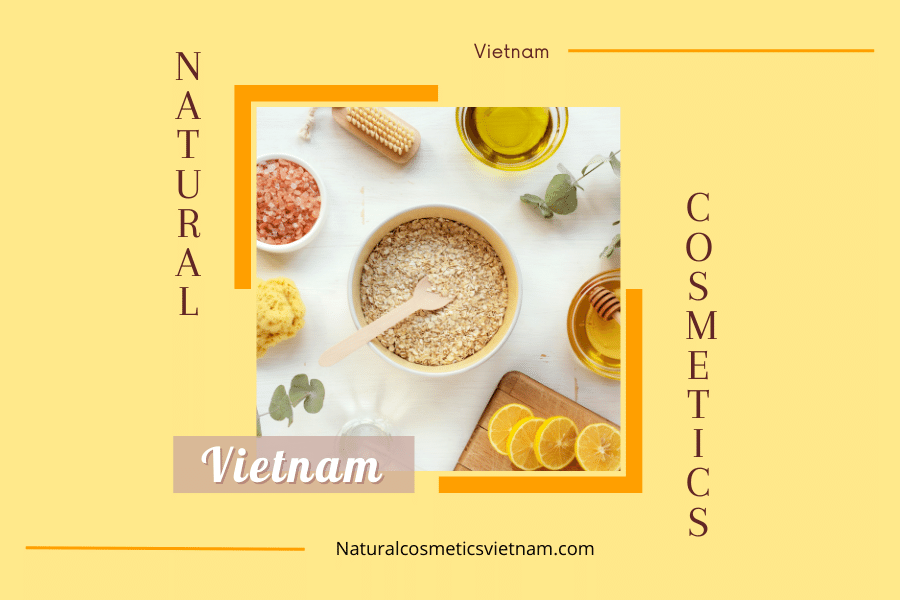
Organic Cosmetics – Embracing Nature for Health and Beauty
Suitable for Sensitive Skin
One of the notable benefits of organic cosmetics is their suitability for sensitive skin. Here are some key points explaining why organic cosmetics are often a preferred choice for individuals with sensitive skin:
- Gentle Formulations: Organic cosmetics are formulated with gentle and non-irritating ingredients. They avoid common irritants such as harsh chemicals, synthetic fragrances, and artificial colors that can trigger sensitivity reactions in the skin. Instead, organic cosmetics focus on using natural and soothing ingredients that are less likely to cause irritation or adverse reactions.
- Avoidance of Harsh Chemicals: Conventional cosmetics often contain chemicals like parabens, sulfates, and phthalates, which can be harsh on sensitive skin. These chemicals have the potential to disrupt the skin’s natural balance and exacerbate sensitivities. Organic cosmetics, on the other hand, are free from such harsh chemicals, reducing the risk of irritation and allergic reactions.
- Natural and Nourishing Ingredients: Organic cosmetics prioritize the use of natural and nourishing ingredients that can benefit sensitive skin. These ingredients, such as plant extracts, botanical oils, and herbal infusions, often possess calming, soothing, and anti-inflammatory properties. They help to alleviate redness, inflammation, and discomfort, providing relief for sensitive skin.
- Reduced Risk of Allergic Reactions: Organic cosmetics are typically made from hypoallergenic ingredients, meaning they have a lower likelihood of causing allergic reactions. However, it’s important to note that individual sensitivities can still vary, and it’s advisable to check ingredient lists and perform patch tests when trying new products, especially for individuals with known allergies or sensitivities.
- Moisturizing and Hydrating Properties: Many organic cosmetics contain natural humectants and emollients that provide hydration and moisture to the skin. These ingredients help to maintain the skin’s moisture barrier and prevent dryness, which is especially beneficial for individuals with sensitive skin prone to dryness and flakiness.
- Focus on Skin Barrier Support: Organic cosmetics often aim to support and strengthen the skin’s natural barrier function. By using gentle ingredients and avoiding harsh chemicals, these cosmetics help maintain the integrity of the skin barrier. A healthy skin barrier can better protect against external irritants and maintain optimal hydration levels, reducing the likelihood of sensitivity flare-ups.
- Customizable and Personalized Options: Organic cosmetics often offer customizable and personalized options to cater to individual skin needs. This includes products that are specifically formulated for sensitive skin or those that can be tailored to address specific concerns. This level of customization allows individuals with sensitive skin to choose products that suit their unique requirements and minimize the risk of sensitivity reactions.
Cruelty-Free and Ethical
One of the key benefits of organic cosmetics is their commitment to being cruelty-free and ethical. Here are some points explaining why organic cosmetics are often considered a more compassionate choice:
- No Animal Testing: Organic cosmetics are produced without subjecting animals to cruel and unnecessary testing. These products are created using alternative testing methods, such as in vitro testing and human volunteers, ensuring that no animals are harmed in the process. By choosing organic cosmetics, individuals can support companies that prioritize the well-being and rights of animals.
- Ethical Ingredient Sourcing: Organic cosmetics often prioritize ethically sourced ingredients. This means that the ingredients used in these products are obtained without causing harm or exploitation to animals or the environment. Organic brands are committed to sustainable practices, fair trade initiatives, and supporting local communities, ensuring that their ingredient sourcing is aligned with ethical standards.
- Vegan-Friendly Options: Many organic cosmetics are also vegan-friendly, meaning they do not contain any animal-derived ingredients. This includes avoiding ingredients like beeswax, lanolin, and carmine, which are commonly found in conventional cosmetics. Vegan-friendly organic cosmetics provide individuals with a compassionate choice that aligns with their values and lifestyle.
- Transparency in Supply Chains: Organic cosmetics often prioritize transparency in their supply chains. They strive to provide clear information about the origins of their ingredients and the ethical standards followed throughout the production process. By promoting transparency, organic brands empower consumers to make informed choices and support companies that uphold ethical practices.
- Supporting Sustainable Practices: Organic cosmetics are often produced using sustainable manufacturing processes. This includes minimizing waste, conserving energy and water, and utilizing eco-friendly packaging materials. By supporting organic cosmetics, individuals contribute to the promotion of sustainable practices in the beauty industry, reducing the environmental impact and creating a more ethical and responsible approach to beauty.
- Certifications and Standards: Organic cosmetics may carry certifications and labels that validate their cruelty-free and ethical claims. Look for certifications like Leaping Bunny, PETA’s Beauty Without Bunnies, or certifications by recognized organic and ethical organizations. These certifications provide assurance that the products have met specific criteria and adhere to strict standards regarding animal testing and ethical practices.
Holistic Approach to Beauty
A holistic approach to beauty is a comprehensive and integrated approach that considers the well-being of the body, mind, and spirit. It recognizes that true beauty encompasses more than just external appearance and emphasizes the importance of nurturing and balancing all aspects of a person’s being. Here are some key points highlighting the holistic approach to beauty:
- Inner Well-being: Holistic beauty focuses on nurturing inner well-being as the foundation of outer beauty. It recognizes that factors such as nutrition, hydration, stress management, and emotional balance play a significant role in the overall health and radiance of the skin, hair, and body. Taking care of the body from within through a balanced diet, regular exercise, mindfulness practices, and self-care routines is considered essential for achieving optimal beauty.
- Mind-Body Connection: Holistic beauty acknowledges the interconnectedness of the mind and body. It recognizes that emotional and mental well-being can significantly impact physical appearance. Practices such as meditation, positive affirmations, and self-reflection are embraced to promote a positive mindset, reduce stress, and enhance overall beauty. The belief is that a calm and balanced mind contributes to a healthier and more radiant appearance.
- Natural and Organic Ingredients: Holistic beauty favors natural and organic ingredients in skincare, haircare, and body care products. These ingredients are chosen for their purity, potency, and ability to work in harmony with the body’s natural processes. Organic cosmetics avoid synthetic chemicals, harsh preservatives, and artificial fragrances, opting instead for botanical extracts, essential oils, and plant-based ingredients that are gentle, nourishing, and aligned with nature.
- Balance and Harmony: Holistic beauty promotes balance and harmony in all aspects of life. It emphasizes the importance of maintaining a healthy work-life balance, managing stress, and cultivating positive relationships. By prioritizing self-care, relaxation, and engaging in activities that bring joy and fulfillment, individuals can achieve a state of well-being that positively influences their outer beauty.
- Conscious Lifestyle Choices: Holistic beauty extends beyond skincare and beauty products to encompass conscious lifestyle choices. This includes considering the environmental impact of personal care products, embracing sustainable practices, and adopting a mindful approach to consumption. By making conscious choices that align with personal values and respect for the environment, individuals contribute to a more sustainable and eco-friendly beauty routine.
- Self-acceptance and Self-love: Holistic beauty encourages self-acceptance and self-love as essential components of true beauty. It emphasizes the importance of embracing one’s unique features, celebrating individuality, and cultivating a positive body image. By practicing self-care, self-compassion, and self-expression, individuals can radiate confidence and inner beauty.
Challenges of organic cosmetics
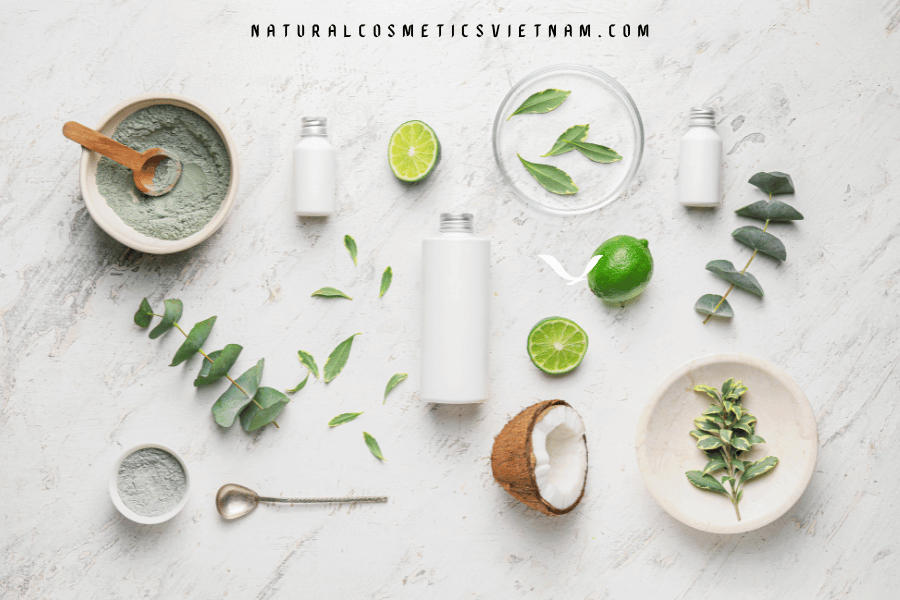
Organic Cosmetics – Embracing Nature for Health and Beauty
While organic cosmetics offer numerous benefits, they also face several challenges. Here are some of the key challenges associated with organic cosmetics:
Sourcing Organic Ingredients
Sourcing organic ingredients for cosmetics can be a complex process that requires careful consideration and adherence to organic standards. Here are some key points to understand and address when sourcing organic ingredients:
- Identify Certified Suppliers: Look for suppliers who are certified organic and have established credibility in the organic industry. These suppliers should have organic certifications from recognized organizations or regulatory bodies, such as USDA Organic, COSMOS Organic, or Ecocert Organic. Working with certified suppliers ensures that the ingredients you source meet the required organic standards.
- Verification of Supply Chain: It’s essential to verify the organic integrity of the entire supply chain. This includes understanding the origin of the ingredients, the farming practices used, and the certification status of each supplier involved. Conduct thorough audits and inspections to ensure that suppliers are compliant with organic standards and that there are no gaps or inconsistencies in the supply chain.
- Establish Relationships with Farmers and Producers: Building direct relationships with organic farmers and producers can help secure a consistent and reliable supply of organic ingredients. Engage in open communication and collaborate with them to understand their farming practices, certifications, and commitment to organic principles. This direct connection can provide transparency and ensure a sustainable supply of organic ingredients.
- Assess Documentation and Certifications: Request detailed documentation and certifications from suppliers to validate the organic claims of the ingredients. This includes certificates of analysis, organic certificates, lab test results, and any other relevant documentation that verifies the organic authenticity of the ingredients. Thoroughly review these documents to ensure compliance with organic standards.
- Traceability and Transparency: Traceability is crucial when sourcing organic ingredients. Ensure that suppliers can provide traceability information for each ingredient, including the specific farms or regions where they were sourced. Transparent supply chains enable you to track the origin of the ingredients and verify their organic status.
- Consider Local and Regional Sources: Exploring local and regional sources for organic ingredients can offer benefits such as reduced carbon footprint, support for local farmers, and fresher ingredients. Look for local organic farms, cooperatives, or sustainable agricultural initiatives that align with your sourcing requirements. This approach also promotes local economies and reduces transportation-related environmental impacts.
- Keep Abreast of Market Trends and Developments: Stay informed about market trends, new organic suppliers, and emerging sources of organic ingredients. Regularly research and evaluate the market to identify potential new sources that align with your requirements. Engage with industry events, trade shows, and networks to stay connected with the organic ingredient community.
- Quality Control and Testing: Implement rigorous quality control measures to ensure the purity, potency, and safety of organic ingredients. Conduct regular testing to verify the absence of contaminants, pesticides, heavy metals, or any other substances that may compromise the organic integrity of the ingredients. This helps maintain the quality and efficacy of your organic cosmetic products.
Stability and Shelf Life
Stability and shelf life are important considerations when developing organic cosmetics. Organic formulations often prioritize the use of natural and minimally processed ingredients, which can pose challenges in terms of product stability and shelf life. Here are some key factors to address to ensure the stability and shelf life of organic cosmetics:
- Ingredient Selection: Carefully select organic ingredients that have inherent stability and longer shelf life. Some ingredients, such as certain botanical oils, natural antioxidants, and plant-based preservatives, have better stability profiles compared to others. Consider using ingredients known for their natural preservation properties to help extend the shelf life of the product.
- Formulation Techniques: Employ formulation techniques that enhance the stability of organic cosmetics. This can include using emulsifiers and stabilizers that are compatible with organic ingredients, optimizing pH levels, and ensuring proper incorporation and dispersion of ingredients. Proper formulation techniques can help prevent ingredient separation, texture changes, and microbial contamination, thus extending the product’s shelf life.
- Packaging: Select packaging materials and designs that protect the organic cosmetics from exposure to air, light, and moisture, which can accelerate product degradation. Dark-colored and opaque containers, airless pumps, or vacuum-sealed packaging can help minimize exposure to external factors that can compromise product stability. Ensure the packaging is suitable for the specific formulation and helps maintain the integrity of the organic ingredients.
- Antioxidant Protection: Incorporate natural antioxidants into the formulation to help prevent oxidation and extend the shelf life of organic cosmetics. Natural antioxidants, such as vitamin E, rosemary extract, and green tea extract, can help inhibit the degradation of oils and other sensitive ingredients. These antioxidants can also provide additional skin benefits, such as free radical scavenging and anti-aging properties.
- Microbial Preservation: Implement effective preservation systems that comply with organic standards while ensuring product safety. Organic cosmetics should still undergo microbial testing to verify that they meet safety requirements. Consider using natural preservatives, such as plant-derived antimicrobial agents or essential oils with antimicrobial properties, to inhibit the growth of bacteria, fungi, and other microorganisms.
- Stability Testing: Conduct rigorous stability testing to assess the product’s performance over time. This involves subjecting the product to various conditions, including temperature variations, exposure to light, and accelerated aging tests, to evaluate its stability, consistency, appearance, and microbial safety. Stability testing helps identify potential formulation issues and allows for adjustments to be made to improve the shelf life and performance of the product.
- Batch Control and Quality Assurance: Implement stringent batch control and quality assurance processes to ensure consistent product quality and stability. This includes thorough documentation, tracking of ingredients, manufacturing practices, and regular quality control testing. Strict adherence to Good Manufacturing Practices (GMP) is crucial to minimize variations and ensure the stability and shelf life of organic cosmetics.
- Labeling and Storage Guidelines: Clearly communicate storage guidelines on product labels to educate consumers on how to properly store and use the product to maintain its stability and shelf life. Provide instructions on temperature requirements, avoiding exposure to sunlight or extreme conditions, and using the product within a recommended timeframe once opened.
Limited Formulation Options
One of the challenges faced by formulators of organic cosmetics is the limited range of formulation options compared to conventional cosmetics. This limitation arises due to the adherence to organic standards and the exclusion of certain synthetic ingredients. Here are some factors to consider when dealing with limited formulation options:
- Ingredient Selection: Focus on selecting organic ingredients that offer multiple benefits and can fulfill various formulation requirements. Organic plant extracts, botanical oils, natural waxes, and butters can provide nourishing, moisturizing, and emollient properties while enhancing the sensory experience of the product. Look for versatile ingredients that can serve multiple functions in the formulation.
- Natural Thickeners and Emulsifiers: Explore natural thickeners and emulsifiers that are permitted in organic formulations. Ingredients like plant-based gums, such as xanthan gum or guar gum, can provide texture and viscosity to cosmetic products. Natural emulsifiers, like lecithin or cetearyl alcohol, can help stabilize oil-in-water emulsions without compromising organic standards.
- Essential Oils for Fragrance: Utilize essential oils for fragrance instead of synthetic fragrances. Essential oils not only provide natural scents but also offer therapeutic benefits. They can enhance the sensory experience of the product while providing potential aromatherapy effects. Ensure that essential oils are properly diluted and used within safe limits to avoid skin sensitization or irritation.
- Natural Colorants: Incorporate natural colorants derived from plants, minerals, or clays to add color to your organic cosmetics. Ingredients like beetroot powder, turmeric, spirulina, or mica can provide natural hues without the need for synthetic dyes or pigments. Conduct stability tests to ensure that the chosen colorants do not cause discoloration or fading over time.
- Focus on Texture and Performance: Organic cosmetics may have different texture profiles compared to conventional products due to the exclusion of certain synthetic ingredients. Experiment with different combinations of organic ingredients and formulation techniques to achieve desired textures, such as creams, lotions, or balms. Consider factors like viscosity, spreadability, and absorption to ensure optimal product performance.
- Compatibility Testing: When working with organic ingredients, it’s crucial to perform compatibility testing to ensure that the selected ingredients interact well and do not lead to formulation issues. Some organic ingredients may have specific pH requirements or compatibility concerns with other ingredients. Conduct small-scale trials and compatibility tests before scaling up to full production to identify any potential formulation challenges.
- Innovation and Research: Stay updated on new developments and innovations in organic cosmetic ingredients and formulation techniques. Research and invest in emerging natural and organic ingredients that offer improved functionality and formulation options. Stay connected with industry events, conferences, and networking platforms to learn from experts and share knowledge within the organic cosmetics community.
- Consumer Education: Educate consumers about the limitations and advantages of organic cosmetics. Highlight the use of organic ingredients, their benefits for the skin, and the overall sustainability and health aspects of organic cosmetics. By raising awareness and promoting the benefits of organic formulations, consumers can appreciate the unique characteristics and formulation choices in organic cosmetics.
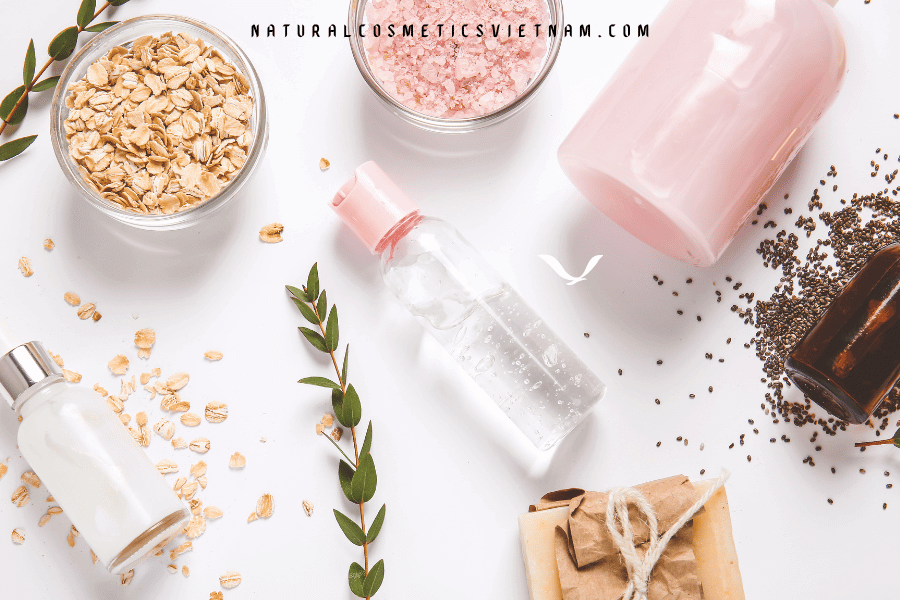
Organic Cosmetics – Embracing Nature for Health and Beauty
Price and Affordability
Price and affordability are significant considerations when it comes to organic cosmetics. Organic cosmetics tend to be priced higher than their conventional counterparts due to several factors. Here are some key points to understand regarding the price and affordability of organic cosmetics:
- Organic Certification and Standards: Obtaining organic certifications and adhering to organic standards involve additional costs for cosmetic manufacturers. Organic certification processes require inspections, audits, and ongoing compliance, which can increase production expenses. These costs are passed on to the consumer, contributing to the higher price point of organic cosmetics.
- Sourcing Organic Ingredients: The cost of sourcing organic ingredients is often higher compared to conventional ingredients. Organic farming practices involve more labor-intensive and environmentally sustainable methods, which can increase production costs. Limited availability and higher demand for organic ingredients can also contribute to their elevated prices, affecting the overall cost of organic cosmetics.
- Manufacturing and Production: Formulating and manufacturing organic cosmetics may require specialized equipment, processes, and facilities to maintain organic integrity. These additional requirements can increase production costs, resulting in higher prices for the final products.
- Packaging and Labeling: Organic cosmetics often prioritize eco-friendly packaging materials, which can be more expensive compared to conventional packaging options. Sustainable packaging materials, such as recycled materials or biodegradable alternatives, can contribute to the higher cost of organic cosmetics. Additionally, incorporating clear and informative labeling regarding organic certifications and ingredients may require additional resources and contribute to overall pricing.
- Market Supply and Demand: The supply and demand dynamics in the organic cosmetics market can influence pricing. The demand for organic cosmetics has been steadily increasing due to growing consumer awareness and preferences for natural and sustainable products. However, the supply of organic ingredients may still be limited, leading to higher prices due to the relatively higher production costs and market demand.
- Economy of Scale: Organic cosmetic brands often operate on a smaller scale compared to large conventional cosmetic manufacturers. This can result in higher production costs as they may not benefit from the same economies of scale, which could lead to increased prices for their products.
- Consumer Perceptions and Willingness to Pay: Consumers who prioritize organic and natural products may be more willing to pay a premium for organic cosmetics due to the perceived benefits and values associated with such products. Higher consumer demand for organic cosmetics can influence pricing strategies, making them more expensive compared to conventional alternatives.
Certification and Regulation
Certification and regulation play a vital role in the organic cosmetics industry to ensure the authenticity, quality, and compliance of products labeled as “organic.” Here are some key points to understand regarding certification and regulation in the context of organic cosmetics:
- Organic Certification: Organic certification is a process through which cosmetic products are verified to meet specific organic standards and guidelines. Certification is typically carried out by recognized certification bodies or organizations that have established criteria for organic cosmetics. These bodies assess the entire supply chain, including ingredient sourcing, manufacturing processes, labeling, and packaging, to ensure compliance with organic standards.
- Organic Standards: Different countries or regions have their own organic standards and regulations for cosmetics. For example, in the United States, the USDA (United States Department of Agriculture) has established the National Organic Program (NOP), which provides guidelines for organic labeling and certification. In Europe, the COSMOS (Cosmetic Organic and Natural Standard) certification is widely recognized. Other countries may have their own specific standards or recognize international standards such as COSMOS.
- Ingredient Requirements: Organic cosmetics must comply with specific ingredient requirements outlined in the organic standards. These requirements typically involve the exclusion of synthetic chemicals, GMOs (genetically modified organisms), and certain harmful ingredients, such as parabens, phthalates, and synthetic fragrances. Organic cosmetics emphasize the use of natural, organic, and minimally processed ingredients derived from plants, minerals, and other natural sources.
- Certification Process: The certification process involves thorough evaluation, documentation, and inspection of the entire supply chain. Cosmetic manufacturers must provide detailed information about their ingredients, production methods, handling of organic materials, labeling practices, and more. Certification bodies conduct audits and inspections to verify compliance with organic standards and issue the appropriate certification based on the findings.
- Labeling Requirements: Organic cosmetics must adhere to specific labeling requirements to accurately inform consumers about the organic content of the product. These requirements may include the use of specific organic logos or seals, such as the USDA Organic seal in the United States or the COSMOS logo in Europe. Labels may also indicate the percentage of organic ingredients present in the product or provide specific details about the organic certification received.
- Monitoring and Enforcement: Regulatory authorities and certification bodies have mechanisms in place to monitor and enforce compliance with organic standards. Regular inspections, random product testing, and review of documentation are conducted to ensure ongoing adherence to organic requirements. Non-compliance can result in penalties, revocation of certification, or legal consequences depending on the jurisdiction.
- Consumer Trust and Transparency: Certification and regulation provide consumers with confidence and trust in the organic cosmetics they purchase. By choosing certified organic products, consumers can be assured that the products meet specific standards, have undergone thorough evaluation, and are produced using environmentally sustainable practices. Certification and regulation also promote transparency, enabling consumers to make informed choices about the products they use.
Consumer Education and Awareness
Consumer education and awareness play a crucial role in the organic cosmetics industry. Educating consumers about organic cosmetics helps them make informed choices and understand the benefits and value of using such products. Here are some key points to consider regarding consumer education and awareness in the context of organic cosmetics:
- Benefits of Organic Cosmetics: Consumer education should emphasize the benefits of organic cosmetics, such as the use of natural and organic ingredients, avoidance of harmful chemicals, and potential positive impacts on personal health and the environment. Highlight the nourishing, gentle, and sustainable aspects of organic cosmetics, as well as their potential efficacy in addressing specific skin concerns.
- Differentiating Organic from Conventional: Many consumers may not fully understand the distinction between organic and conventional cosmetics. Educate them about the differences in ingredient sourcing, manufacturing processes, and labeling practices. Emphasize the importance of organic certifications and the compliance with organic standards to ensure authenticity and quality.
- Environmental and Sustainability Aspects: Raise awareness about the environmental benefits of organic cosmetics. Explain how organic farming practices support biodiversity, reduce chemical pollution, and promote sustainable agriculture. Highlight the use of eco-friendly packaging materials and the overall commitment of organic cosmetic brands to reduce their environmental footprint.
- Transparency and Labeling: Educate consumers on how to read and interpret labels on cosmetic products. Explain the significance of organic certification logos or seals, percentage of organic ingredients, and other relevant labeling information. Encourage consumers to look for clear and accurate labeling to make informed purchasing decisions.
- Consumer Safety and Health: Highlight the potential health benefits of using organic cosmetics. Educate consumers about the potential risks associated with certain synthetic chemicals commonly found in conventional cosmetics and the advantages of using natural and organic ingredients. Emphasize that organic cosmetics prioritize safety, especially for individuals with sensitive skin or specific health concerns.
- Scientific Research and Studies: Share relevant scientific research and studies that support the efficacy and benefits of organic cosmetics. Provide information on clinical trials, dermatological tests, or consumer surveys that demonstrate the positive effects of organic ingredients on skin health and overall well-being.
- Access to Information: Ensure that consumers have access to accurate and reliable information about organic cosmetics. Develop user-friendly websites, brochures, or educational materials that explain organic principles, ingredients, certifications, and any frequently asked questions. Collaborate with retailers, beauty influencers, and health professionals to disseminate information and create awareness.
- Social Media and Online Platforms: Utilize social media platforms and online communities to engage with consumers, share educational content, and address their concerns or questions. Encourage discussions, testimonials, and reviews from consumers who have experienced the benefits of organic cosmetics, helping to build a community of informed users.
- Collaboration with Retailers: Work closely with retailers to promote organic cosmetics and provide accurate information at the point of purchase. Provide training and materials to sales representatives so they can educate customers about organic products and address their queries effectively.
- Sustainability Initiatives: Highlight the commitment of organic cosmetic brands to sustainability and social responsibility. Communicate their efforts in areas such as ethical sourcing, fair trade practices, community empowerment, and philanthropic initiatives. Consumer education should emphasize the holistic approach of organic cosmetics and their positive impact beyond personal beauty.
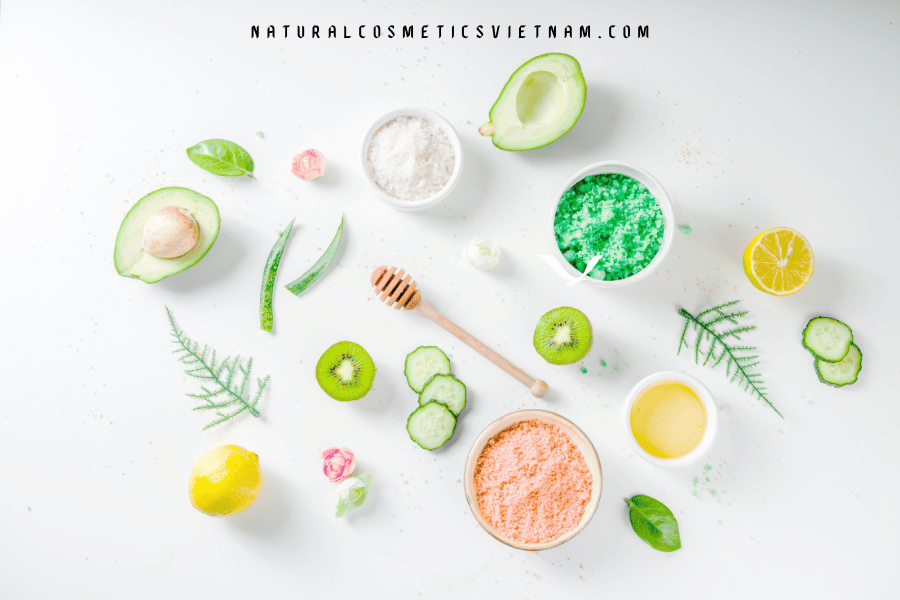
Organic Cosmetics – Embracing Nature for Health and Beauty
Market Competition
Market competition is a significant aspect of the organic cosmetics industry, as it influences product development, pricing strategies, and brand positioning. Here are some key points to consider regarding market competition in the organic cosmetics sector:
- Increasing Demand: The demand for organic cosmetics has been steadily growing as consumers become more conscious of the ingredients they put on their skin and the environmental impact of their choices. This increased demand has led to a more competitive market, with new brands entering the industry and established brands expanding their organic product lines.
- Brand Differentiation: With the rise in competition, brands need to differentiate themselves to stand out in the market. This can be achieved through unique formulations, innovative packaging, targeted marketing strategies, or specific brand values and missions. Brands that effectively communicate their unique selling propositions and create a distinct identity have a better chance of capturing consumer attention and loyalty.
- Ingredient Sourcing and Quality: The quality and sourcing of organic ingredients can be a key factor in market competition. Brands that prioritize sourcing high-quality, certified organic ingredients, and establish strong relationships with suppliers have a competitive advantage. Ensuring transparency in ingredient sourcing and emphasizing the integrity of the supply chain can enhance consumer trust and differentiate a brand in the market.
- Innovation and Product Development: Continuous innovation is essential to stay competitive in the organic cosmetics industry. Brands that invest in research and development to create new and effective organic formulations, address specific skin concerns, or incorporate emerging trends and ingredients can gain a competitive edge. Staying up-to-date with consumer preferences and evolving market demands is crucial for product development success.
- Marketing and Branding Strategies: Effective marketing and branding strategies are essential to reach and engage target consumers in a competitive market. Brands need to communicate the unique features and benefits of their organic cosmetics through various channels, such as social media, websites, influencer partnerships, and educational content. Building a strong brand image, highlighting the values and authenticity of organic products, and connecting with the target audience can help brands differentiate themselves.
- Pricing Strategies: Pricing plays a significant role in market competition. Brands need to find a balance between offering organic cosmetics at a price point that reflects their quality and the costs associated with organic certification, ingredient sourcing, and sustainable practices, while also considering the affordability expectations of their target market. Competitive pricing strategies, promotional offers, and value-added incentives can help brands attract and retain customers.
- Retail Distribution Channels: The availability and accessibility of organic cosmetics through various retail channels can impact market competition. Brands need to strategically select distribution channels that align with their target market and provide visibility and exposure. This can include traditional retail stores, online platforms, specialty organic stores, or collaborations with spas, salons, or health and wellness centers.
- Consumer Reviews and Recommendations: Positive consumer reviews and recommendations can significantly influence market competition. Brands that consistently deliver high-quality organic cosmetics and exceptional customer experiences can generate positive word-of-mouth and build a loyal customer base. Encouraging and leveraging customer reviews and testimonials can help enhance brand reputation and differentiate from competitors.
- Sustainability and Corporate Social Responsibility: As consumer awareness and preferences for sustainable practices increase, brands that demonstrate a strong commitment to sustainability and corporate social responsibility can gain a competitive advantage. This includes initiatives like eco-friendly packaging, ethical sourcing, giving back to communities, or supporting environmental causes. Highlighting these efforts can resonate with consumers and set brands apart from their competitors.
The demand for organic cosmetics is witnessing a remarkable surge as consumers become more conscious about their health and the environment. With an increasing focus on sustainability and ethical choices, the organic cosmetics industry is poised for continued growth. The market is witnessing the emergence of new organic beauty brands, offering innovative formulations that combine nature’s wisdom with scientific advancements. As more people embrace organic cosmetics, the industry will likely witness advancements in ingredient sourcing, formulation techniques, and eco-friendly packaging solutions.
Conclusion: Organic cosmetics represent a shift towards healthier and more sustainable beauty choices. By opting for organic cosmetics, individuals prioritize their well-being while minimizing their ecological footprint. The use of organic ingredients, meticulous production processes, and adherence to certification standards ensure the authenticity and efficacy of these products. As the organic cosmetics industry continues to flourish, it offers a promising future where beauty and environmental consciousness seamlessly intertwine. Let us embrace organic cosmetics and contribute to a world where nature’s gifts are cherished, and our well-being is nurtured in harmony with the planet.

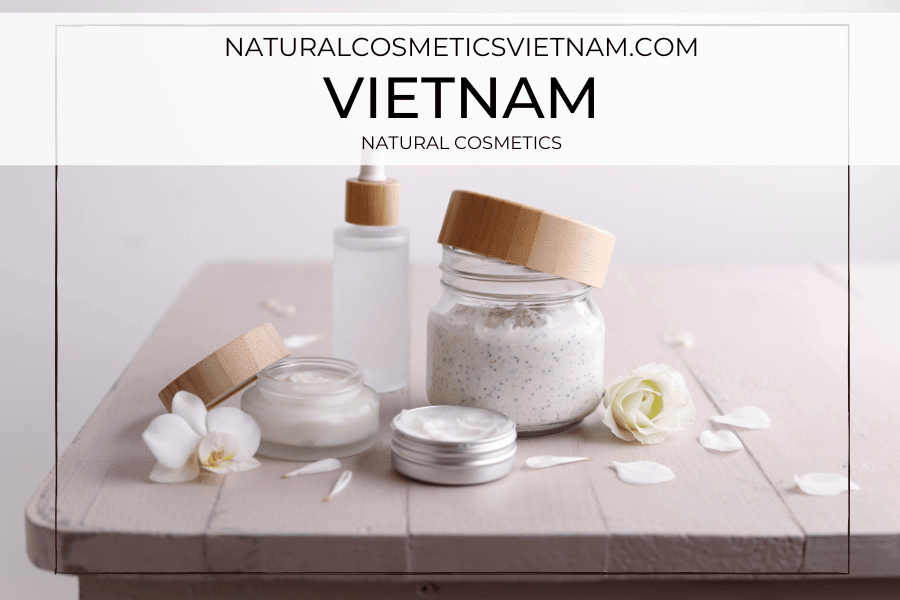









Leave a reply